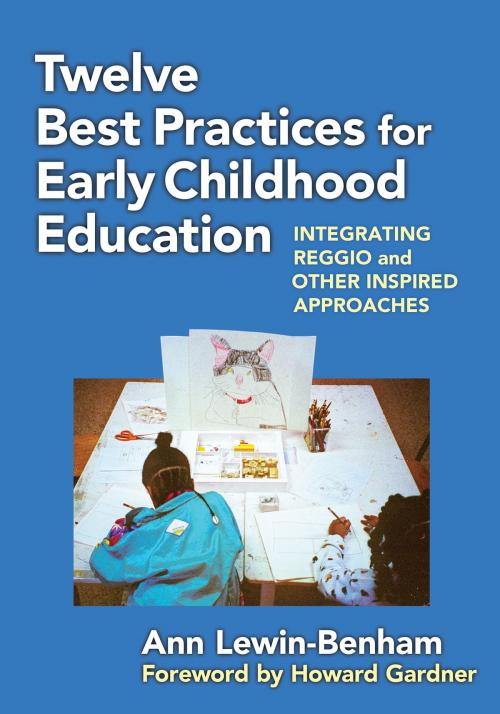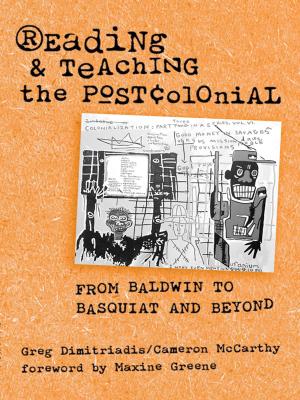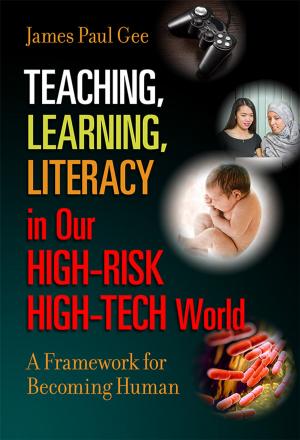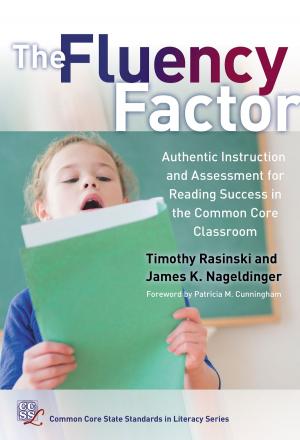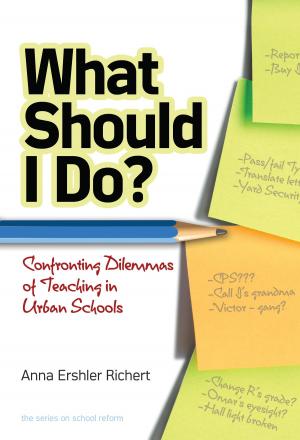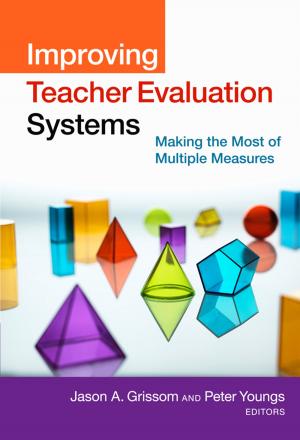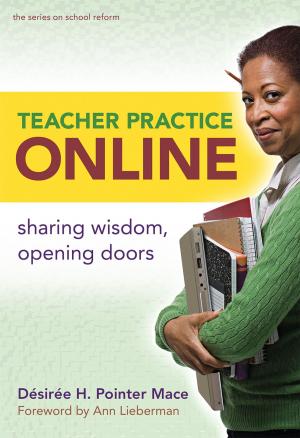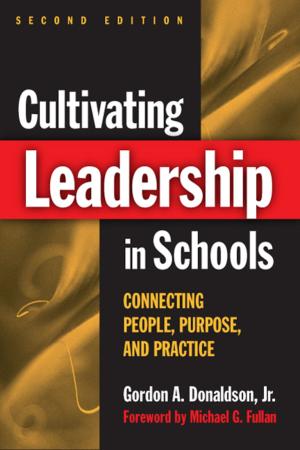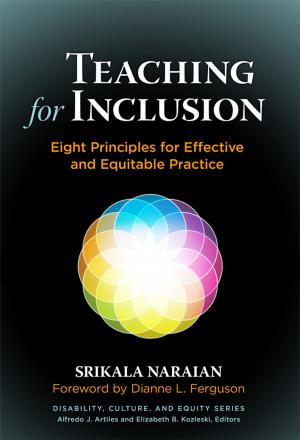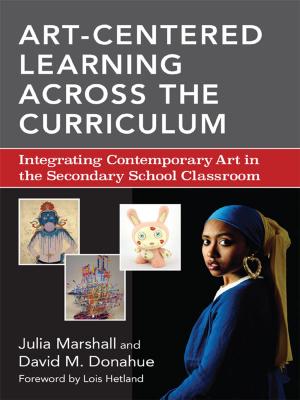Twelve Best Practices for Early Childhood Education
Integrating Reggio and Other Inspired Approaches
Nonfiction, Reference & Language, Education & Teaching, Preschool & Kindergarten| Author: | Ann Lewin-Benham | ISBN: | 9780807771396 |
| Publisher: | Teachers College Press | Publication: | December 15, 2009 |
| Imprint: | Language: | English |
| Author: | Ann Lewin-Benham |
| ISBN: | 9780807771396 |
| Publisher: | Teachers College Press |
| Publication: | December 15, 2009 |
| Imprint: | |
| Language: | English |
In her new book, popular author Ann Lewin-Benham draws on her intimate knowledge and experience with the Reggio Approach to present 12 “best practices” inspired not only by Reggio, but also by play-based and Montessori approaches to early childhood education. These practices are demonstrated, one per chapter, with scenarios from classrooms, dialogues of children and teachers, and work samples showing the outcome of using each practice. Used together, the 12 best practices offer a new framework for early education.
Written in the accessible style that her readers appreciate, this book expands on Lewin-Benham’s earlier works by showing the foundations for teachers to practice the Reggio Approach in their own settings. It introduces several new techniques: fostering language skills through Meaningful Conversation, designing inspiring environments, switching from a scheduled to an Open Flow day, using materials to build brain networks and stimulate Significant Work, and much more.
This important resource also includes a self-assessment tool, EXCEL, to assist you in examining your practices and those of your school. All chapters include key points and questions to help readers think more deeply about the material presented.
Ann Lewin-Benham founded and for 20 years directed the Capital Children’s Museum in Washington, DC, where she also founded and directed the Model Early Learning Center. She is the author of Infants and Toddlers at Work: Using Reggio-Inspired Materials to Support Brain Development, Possible Schools: The Reggio Approach to Urban Education,and Powerful Children: Understanding How to Teach and Learn Using the Reggio Approach.
“I predict that you’ll place this book alongside those educational readings that you value most; and that, in the manner of a vade mecum, you will draw on it regularly for implementation, insight, and inspiration.”
—From the Foreword by Howard Gardner, Harvard Graduate School of Education
“In this highly personal volume, Lewin-Benham offers joyful, grounded, and practical counsel to early childhood teachers. Building on an inspirational code of beliefs, the volume graphically portrays 12 ‘best practices’ that are sure to provoke as much thought as they are to evoke wise and insightful practice. A totally delightful and thoroughly helpful contribution!”
—Sharon Lynn Kagan, Virginia and Leonard Marx Professor of Early Childhood and Family Policy and Co-Director, National Center for Children and Families, Teachers College, Columbia University
“Once again, Ann Lewin-Benham has demonstrated the depth of her knowledge and understanding of the field of early childhood education and the sharp insights of one who accommodates the intersection of theory and practice; one who has created and supported Reggio-inspired early childhood programs that value children’s time and intelligence; and one who has repeatedly sounded the clarion call for the nation to give our young children the schools they deserve. This book is a must-read for all who care about doing the right thing for children.”
—Maurice Sykes, Executive Director, Early Childhood Leadership Institute, University of the District of Columbia
In her new book, popular author Ann Lewin-Benham draws on her intimate knowledge and experience with the Reggio Approach to present 12 “best practices” inspired not only by Reggio, but also by play-based and Montessori approaches to early childhood education. These practices are demonstrated, one per chapter, with scenarios from classrooms, dialogues of children and teachers, and work samples showing the outcome of using each practice. Used together, the 12 best practices offer a new framework for early education.
Written in the accessible style that her readers appreciate, this book expands on Lewin-Benham’s earlier works by showing the foundations for teachers to practice the Reggio Approach in their own settings. It introduces several new techniques: fostering language skills through Meaningful Conversation, designing inspiring environments, switching from a scheduled to an Open Flow day, using materials to build brain networks and stimulate Significant Work, and much more.
This important resource also includes a self-assessment tool, EXCEL, to assist you in examining your practices and those of your school. All chapters include key points and questions to help readers think more deeply about the material presented.
Ann Lewin-Benham founded and for 20 years directed the Capital Children’s Museum in Washington, DC, where she also founded and directed the Model Early Learning Center. She is the author of Infants and Toddlers at Work: Using Reggio-Inspired Materials to Support Brain Development, Possible Schools: The Reggio Approach to Urban Education,and Powerful Children: Understanding How to Teach and Learn Using the Reggio Approach.
“I predict that you’ll place this book alongside those educational readings that you value most; and that, in the manner of a vade mecum, you will draw on it regularly for implementation, insight, and inspiration.”
—From the Foreword by Howard Gardner, Harvard Graduate School of Education
“In this highly personal volume, Lewin-Benham offers joyful, grounded, and practical counsel to early childhood teachers. Building on an inspirational code of beliefs, the volume graphically portrays 12 ‘best practices’ that are sure to provoke as much thought as they are to evoke wise and insightful practice. A totally delightful and thoroughly helpful contribution!”
—Sharon Lynn Kagan, Virginia and Leonard Marx Professor of Early Childhood and Family Policy and Co-Director, National Center for Children and Families, Teachers College, Columbia University
“Once again, Ann Lewin-Benham has demonstrated the depth of her knowledge and understanding of the field of early childhood education and the sharp insights of one who accommodates the intersection of theory and practice; one who has created and supported Reggio-inspired early childhood programs that value children’s time and intelligence; and one who has repeatedly sounded the clarion call for the nation to give our young children the schools they deserve. This book is a must-read for all who care about doing the right thing for children.”
—Maurice Sykes, Executive Director, Early Childhood Leadership Institute, University of the District of Columbia
